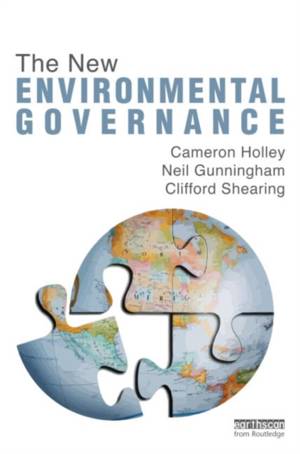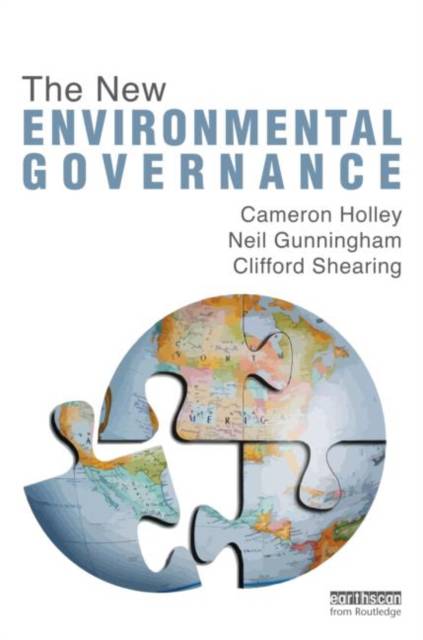
- Retrait gratuit dans votre magasin Club
- 7.000.000 titres dans notre catalogue
- Payer en toute sécurité
- Toujours un magasin près de chez vous
- Retrait gratuit dans votre magasin Club
- 7.000.0000 titres dans notre catalogue
- Payer en toute sécurité
- Toujours un magasin près de chez vous
The New Environmental Governance
Cameron Holley, Neil Gunningham, Clifford Shearing
Livre relié | Anglais
305,45 €
+ 610 points
Description
A bold and profoundly new way of governing environmental problems is palpable around the globe and aims to overcome the limitations of the interventionist state and its market alternative to offer more effective and legitimate solutions to today's most pressing environmental problems. The 'new environmental governance' (NEG) emphasises a host of novel characteristics including participation, collaboration, deliberation, learning and adaptation and 'new' forms of accountability. While these unique features have generated significant praise from legal and governance scholars, there have been very few systematic evaluations of NEG in practice, and it is still unclear whether NEG will in fact 'work', and if so, when and how. This book offers one of the most rigorous research investigations into cutting edge trends in environmental governance to date. Focusing its inquiry around some of the most central, controversial and/or under researched characteristics of NEG, the book offers fresh insights into the conditions under which we can best achieve successful collaboration, effective learning and adaptation, meaningful participatory and deliberative governance and effective forms of accountability. The book synthesizes its findings to identify seven key pillars of 'good' NEG that are central to its success and will provide useful guidance for policymakers and scholars seeking to apply new governance to a wide range of environmental and non-environmental policy contexts. The book also advances our understanding of State governance and will be a valuable reference for scholars, researchers and students working in law and regulation studies - especially in the field of environmental law.
Spécifications
Parties prenantes
- Auteur(s) :
- Editeur:
Contenu
- Nombre de pages :
- 240
- Langue:
- Anglais
Caractéristiques
- EAN:
- 9781849714105
- Date de parution :
- 05-12-11
- Format:
- Livre relié
- Format numérique:
- Genaaid
- Dimensions :
- 156 mm x 234 mm
- Poids :
- 517 g

Les avis
Nous publions uniquement les avis qui respectent les conditions requises. Consultez nos conditions pour les avis.






